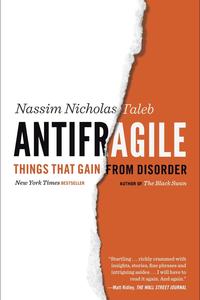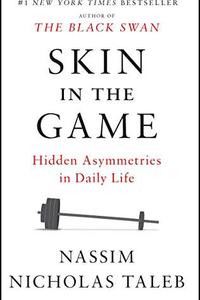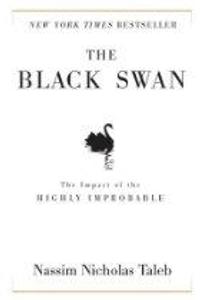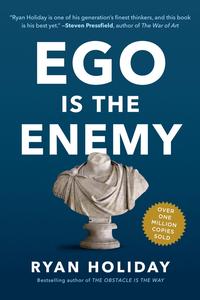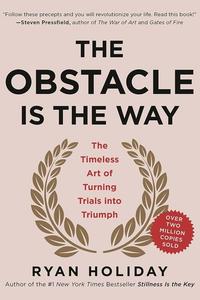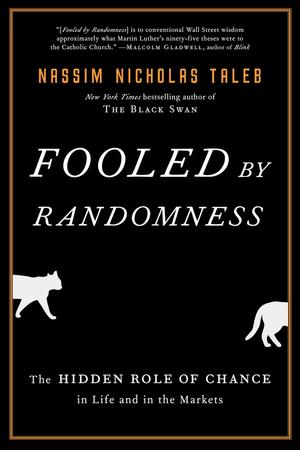
Fooled by Randomness by Nassim Nicholas Taleb: Summary & Notes
by Nassim Nicholas Taleb
In One Sentence
We are blind to the role of luck and randomness in life, systematically attributing success to skill and failure to bad luck—an error that leads to poor decisions.
Key Takeaways
- Survivorship bias: we see winners but not the many losers
- Randomness fools us into seeing patterns that don't exist
- The narrative fallacy: we create stories to explain random events
- Monte Carlo thinking: consider all possible outcomes, not just what happened
- Lucky fools can look like skilled investors—for a while
- Alternative histories: what else could have happened?
Summary
Taleb’s first book has stood the test of time, and remains one of the most eye-opening books I’ve ever read. His Incerto has changed my thinking more than any other series.
Fooled by Randomness shows that though our world is dominated by randomness, as humans we are not built to deal with it. We see causality where there is none, and stress over things that are random. We fail to realize when outcomes are driven by randomness, and drive ourselves crazy as a result. And we study and worship those who likely had a large part of their success driven by randomness.
Taleb’s writing is also some of the most entertaining I’ve ever read. Read this book and you’ll never see the world the same again.
Who Should Read This Book
- Investors and traders
- Anyone making decisions under uncertainty
- People who attribute success purely to skill
- Readers who enjoy probability and philosophy
FAQ
What is the main idea of Fooled by Randomness?
We systematically underestimate randomness in life. We see patterns in noise, attribute success to skill rather than luck, and fail to consider alternative outcomes. This leads to overconfidence and poor decision-making.
📖 Chapter-by-Chapter Breakdown
Click to expand the full detailed notes for every chapter →
📖 Chapter-by-Chapter Breakdown
Click to expand the full detailed notes for every chapter →
Biggest Takeaways
- Randomness dominates our lives, yet we are not built to deal with this. We look for narratives and causality in everything, regardless of whether it is there.
- We tend to revise history to make sense once it has happened; but it must be judged by the knowledge that was available at the time.
- We also only consider the winners: we routinely fail to judge things by the full sample (ex: actors and writers).
- We cannot fight our biological tendencies; we can only learn to avoid them altogether (like avoiding emotional torture by avoiding the news).
- It is not how likely an event is that matters; it is the magnitude of the outcome that counts.
- I can use data to disprove a proposition or hypothesis, but never to prove one.
Notes
- Past events will always look less random than they were (hindsight bias).
- In the real world, one has to guess the problem more than the solution.
- Of course chance favours the prepared; that does not mean that luck doesn’t play a large role, particularly when it comes to extreme outcomes.
- It doesn’t matter how frequently something succeeds if failure is too costly to bear (paying Russian roulette for $10M).
- Work ethics draw people to focus on noise rather than on signal.
- One cannot consider anything—like the success of those in a profession—without taking into account the average of the people who enter it, not the sample of those who have succeeded in it.
- Similarly, one cannot judge a performance in any given field by the results, but by the costs of the alternative (ie. if history played out in a different way).
- Denigration of history: what happened to them won’t happen to me.
- A mistake is not something to be determined after the fact, but in light of the information until that point.
- Ergodicity: very long sample paths end up resembling each other (if you play Russian roulette long enough, you will die). Or “bad trades catch up with you.”
- In other words: time will eventually remove the effects of randomness.
- If an idea has survived for many cycles, it can be considered relatively good, as some noise has been filtered out. This is why you shouldn’t listen to the hourly news, but should read old books that are still in print.
- Inductive statements, like “all swans are white” are impossible to verify; we can only say with certainty things which are falsifiable: “not all swans are white” (after seeing a black swan).
- Induction: going from plenty of particulars to the general.
- In other words, I can use data to disprove a proposition, but never to prove one.
- We do not need to be rational and scientific when it comes to the details of our daily life; only those that threaten our survival. Yet we do the opposite: we become rational when it comes to religion and personal behaviour, yet irrational with things like investments.
- Cross-sectional problem: at any given time in the market, the most successful traders are likely to be those best fit to the latest cycle.
- Evolution does not mean that all things get fitter over time. Evolution is about reproductive fitness, not survival, and randomness means that we see regressions and diversions too. Darwinian fitness applies to species developing over a very long time, not observed over a short term.
- Whenever there is an asymmetry in outcomes, the average and the median are very different. We often confuse probability and expectation, expectation being the probability times the payoff, yet the magnitude of the outcome often dominates what matters.
- What we should learn from history is that unexpected events—and those that have never happened before—happen.
- Learning specific things from history is nearly impossible because conditions have changed.
- Speculation is fine, but with the following lens: no rare event should harm me, and ideally it should help me.
- So: use statistics and inductive methods to make aggressive bets, but do not use them to manage risk and exposure.
- The sample size matters: in any large initial sample, you are bound to have outsize successes, simply by randomness. Take a sample of the the worst fund managers in the world, make it large enough, and you’ll have someone that beats the market many years in a row (the monkeys-on-a-typewriter problem).
- Not only this, but the expectation of the maximum of the track records is dependent more on the initial sample size than on the individual odds of one manager.
- Survivorship bias is one of the most prevalent in our society: we only see the winners in a given profession, time, neighborhood, etc., and draw conclusions from them, when we need to look at the full sample. It’s why the expected value of becoming a dentist is far higher than that of a writer, actor, or rapper.
- For results in real life, the larger the deviation from the norm, the larger the probability of it coming from luck rather than skills.
- We often make mistakes calculating probabilities. There is a 50% chance of 2 people in a room of 23 having the same birthday, much higher than you’d think. That’s because we’re searching for any relationship, not a specific one. Finding a relationship of some kind in big datasets is much easier than you’d think.
- Nonlinear effects are everywhere in life, which also complicates our understanding of causality. Worse products winning, or actors becoming famous because they got a break at some point in the past are good examples. Or the virality of specific products.
- Other areas we often make mistakes with probability: conditional probability (the odds of X conditional on Y), and joint probability (the odds of X considering Y other thing). Life expectancy is a good example of conditional probability.
- Wittgenstein’s ruler: unless you have confidence in the ruler’s reliability, if you use a ruler to measure a table you may also be using the table to measure the ruler. In real life, this takes the form of things like book reviews showing more about the reviewer than the book itself.
- Attribution bias: you attribute your successes to skills, but your failures to randomness. This also has the effect of making people think they’re better than they are at things (80-90% of people think they are above average in many things).
- The answer to randomness in our lives: dignity. Never act with self-pity and keep a dignified attitude.
- A slightly random schedule prevents us from optimizing and being too efficient, particularly in the wrong things.
- Writing rule: for writing to be agreeable, the length of the piece needs to remain unpredictable.
- Don’t do to others what you don’t want them to do to you.
- We favor the visible, the embedded, the personal, the narrated, and the tangible; we scorn the abstract.
Favourite Quotes
- “In the real world one has to guess the problem more than the solution.”
- “What sounds intelligent in a conversation or a meeting, or, particularly, in the media, is suspicious.”
- “I needed the backing of my bank account so I could buy time to think and enjoy life.”
Recommended Books
- Irrational Exuberance - Robert Shiller
- Treatise on Probability - Keynes
- Fashionable Nonsense - Alan Sokal
- Casanova’s Memoirs of My Life
- Descartes’ Error - Damasio
- Emotional Brain - LeDoux
- In Search of Time - Marcel Proust
- Le Fric - Jean-Manuel Rozan
- Mean Genes - Terry Burnham, Jay Phelan
- The Tipping Point - Malcolm Gladwell
